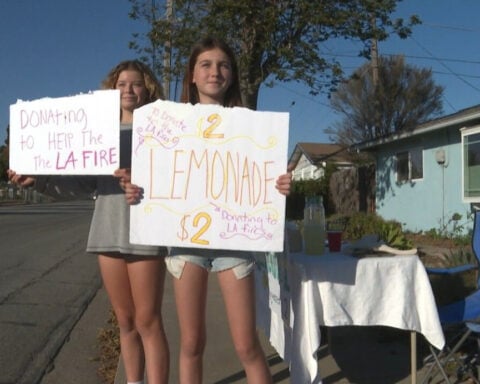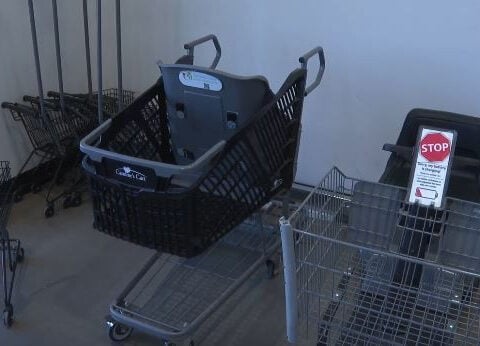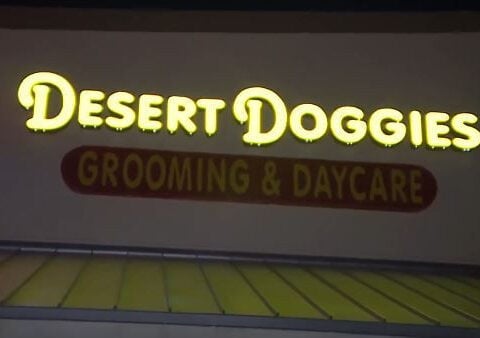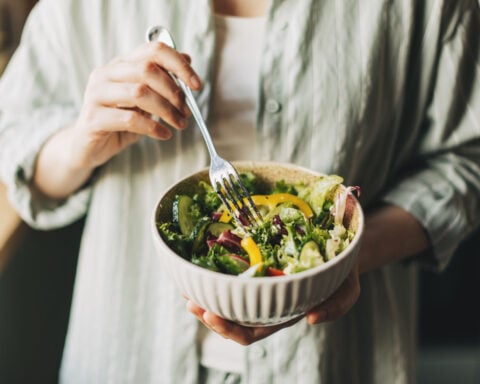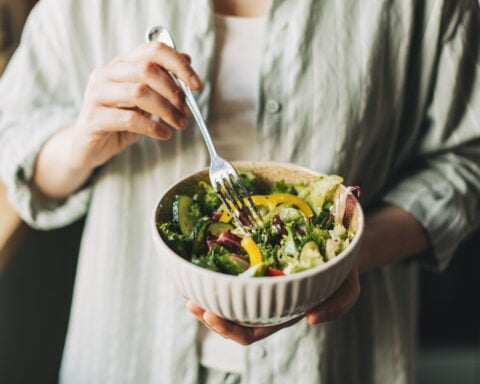(CNN) — Watch any zombie movie, and you’ll likely see people panicking and turning on each other to prevent the undead from snacking on their brains. But researchers recognize that such responses are merely myths.
In crises, most people actually respond with compassion, care and cooperation. Humans, it turns out, have been teaming up to deal with catastrophes since the early days of civilization.
While researching my book “Saved at the Seawall: Stories from the September 11 Boat Lift,” I spent hundreds of hours interviewing individuals involved in the spontaneous evacuation of nearly 500,000 people from Lower Manhattan by boat after the World Trade Center attacks. I heard plenty about the horrors facing stranded, dust-choked civilians who scrambled to board any available vessel. But everyone I spoke with denied any panic, pushing or shoving. In fact, crowds parted ways to allow seriously injured individuals to evacuate first.
Meanwhile, maritime crews put themselves in harm’s way over and over, pointing their bows back toward ground zero to pick up still more passengers desperate to escape Manhattan Island. Researchers have found examples throughout history of the “catastrophe compassion” that leads people to volunteer during disasters.
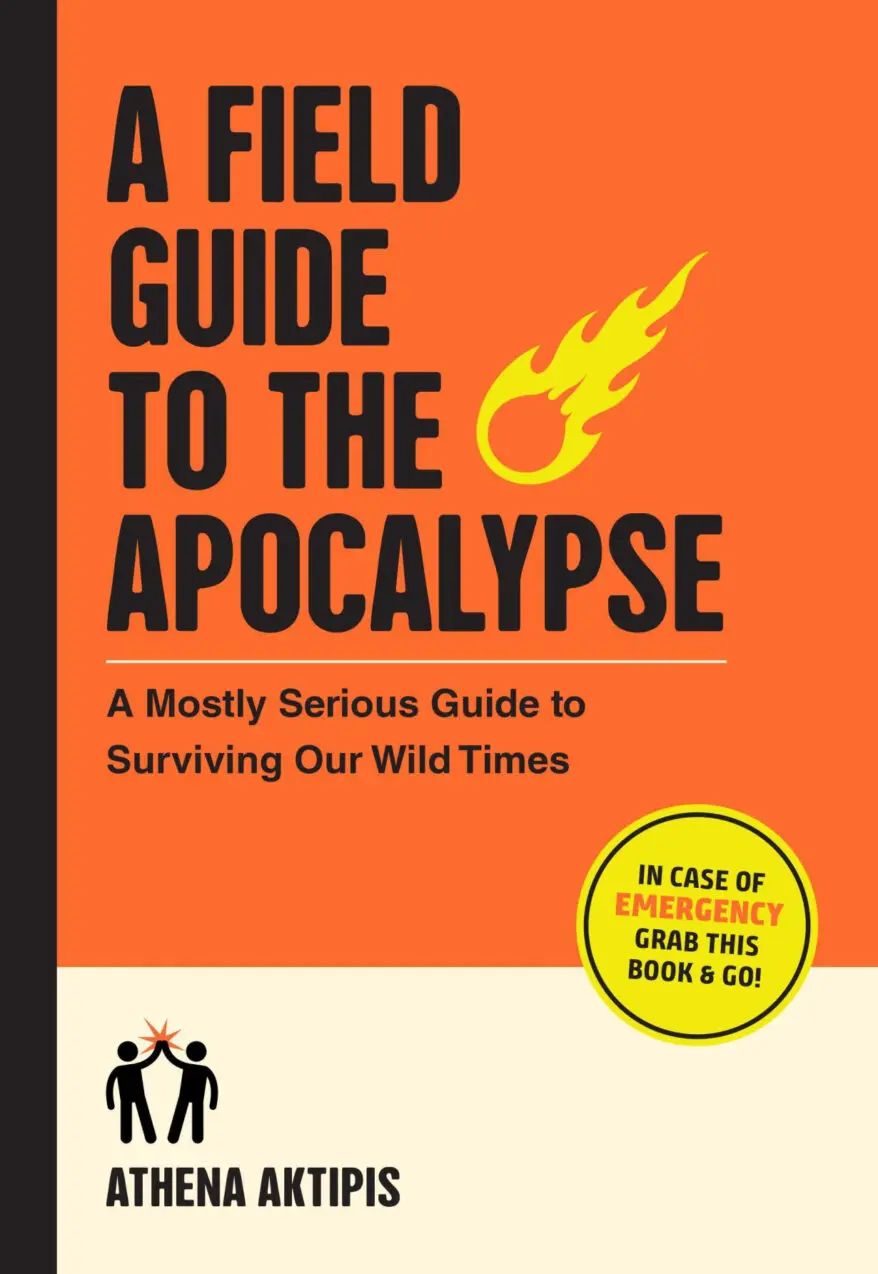
“In times of catastrophe, people often go into a highly cooperative mode instinctually,” Athena Aktipis explained in her book “A Field Guide to the Apocalypse: A Mostly Serious Guide to Surviving Our Wild Times.” Look at any recent cataclysm and “we see that more people step in to help and provide aid, and that chaos and taking advantage of others is the exception, not the rule.”
I spoke with Aktipis, an associate professor of psychology at Arizona State University, who urges people to remember this when preparing for disasters of all kinds — especially while building a “Z-team” of those we’d want to have by our side while facing an apocalypse, zombie or otherwise. (Z stands for zombie, of course.) Aktipis is a cooperation theorist and social psychologist who has studied cooperation, human generosity and conflict for more than 20 years.
Serious as she is about prepping for the Big One (find her survival kit recommendations here), Aktipis is also determined to “make the apocalypse fun again.” She wrote that she hopes her book will take readers from “feeling fear about the uncertainty of the future to feeling ready to restructure your life to create a more sustainable and resilient future for all humankind.”
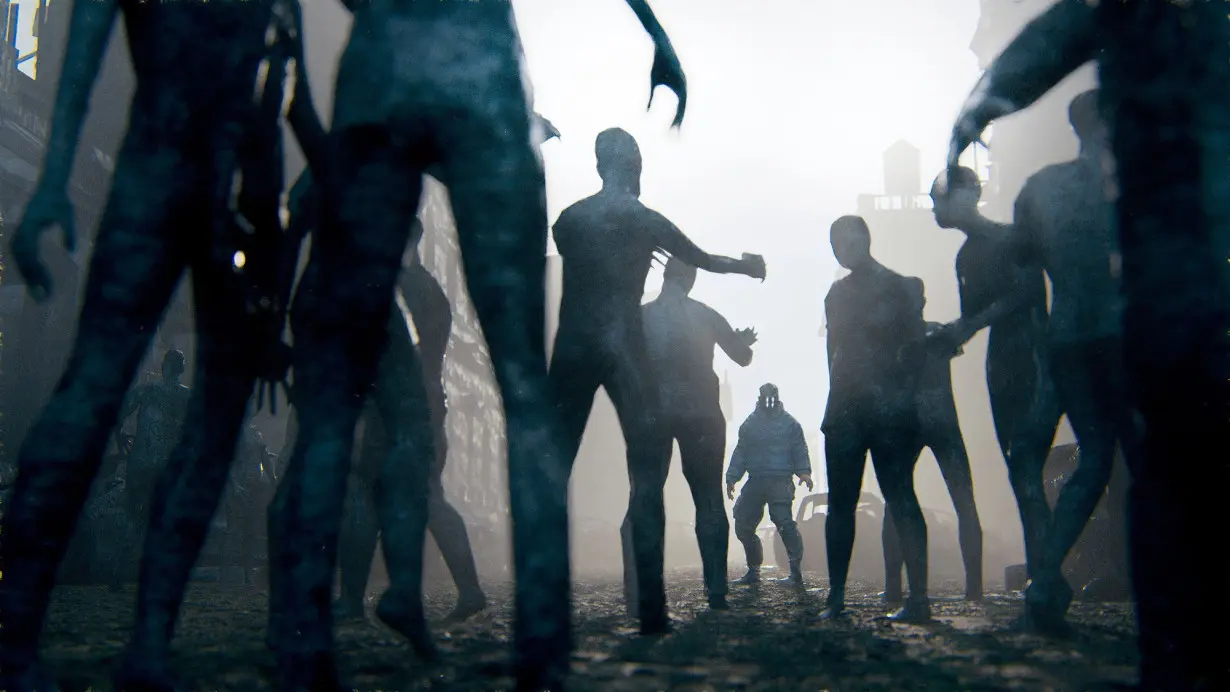
After all, she argued, “deep down, all of us want to save the world,” and collaboration is the time-tested prime directive.
This conversation has been edited and condensed for clarity.
CNN: What do you mean by apocalypse?
Athena Aktipis: The ancient Greek definition is “a revealing,” so an apocalypse is any event that reveals the risks we’re facing. These provide us with opportunities to learn and to shore up our vulnerabilities so we can survive and thrive in increasingly apocalyptic times.
We’re not just in for an apocalyptic future; we also live in an apocalyptic present. Apocalypses are going on around the world all the time. Things are always dire somewhere.
Mentally grappling with the apocalypse gives us a chance to figure out what’s really important to us and to build a community that helps buffer us against risk, whether those risks are apocalyptic or everyday.
CNN: What has your work taught you about how and when people help each other?
Aktipis: Through fieldwork, experiments with human participants in the lab and in the computer modeling I do, we’ve seen that situations where there’s uncertainty, unpredictability and crisis bring out people’s instincts to help each other, without expecting anything in return.
Helping in times of need sets up an informal pooling of risk. Evolutionarily, it’s more important to have a safety net of mutual aid than it is to get a little bit ahead.
CNN: Does this mean humans are inherently collectivist?
Aktipis: This tendency has elements of both collectivism and individualism. The ranchers we’ve studied in southern Arizona and New Mexico who live on vast expanses, miles away from their neighbors, are a paragon of independence, very much believing that you should take care of your own challenges. But if an unexpected problem arises — if somebody’s injured or sick, or there’s a death, or an equipment failure that’s unpredictable — they pop in to help each other with no strings attached.
Our willingness to help is often based on the simple knowledge that we have the capacity to relieve the need we see. And when we feel interdependent with the people around us, that makes it easier to step up.
CNN: What role have apocalypses throughout history played in what you call humans’ “apocalypse resistance”?
Aktipis: We have dealt with apocalyptic situations for our entire history — even before we were humans. All organisms evolved to deal with risks. Environmental changes, migrations, wars have been part of our societies for a long time, and humans have evolved to deal with risks together, collectively.
We not only adapt when situations in our environment change, but, once we get out of the crisis and process, we also learn. The most important human ability for dealing with crises is cooperation. Next are our abilities to communicate and share information and to be bonded with each other, genuinely caring about one another’s well-being. All those things help us get through, as they have throughout our evolution.
CNN: Given all of today’s world crises, how do we move past a sense of powerlessness that can keep us from taking action?
Aktipis: It’s important to have a sense of adventure! It’s easy to get stuck in a fear mindset about the changes that are happening in the world, but we can look at those challenges as opportunities to learn and grow, to understand our world better, and to get out ahead of it. Instead of waiting for bad events to happen, we can figure out ahead of time at least some simple things we can do to be more resilient. That can pay off massively when a bad event does occur.
People are often told to manage their own stress with mindfulness, but we need mechanisms for dealing together with the collective stress many of us feel. Cooperating, communicating and working together in community is essential. The arts are wonderful, extremely important ways for people to cope with ambiguity and anxiety and to imagine a potential collective future together. Stories offer this really cool way to bring shared attention to alternative realities, futures and possibilities that help us coordinate potential movement in new directions.
CNN: Will our evolutionary apocalypse resistance be sufficient to confront today’s disasters?
Aktipis: Today’s apocalypses play out on a massive scale that we haven’t yet evolved to manage. The large existential risks we face exist at a scale we can’t grapple with as individuals. To survive challenges, we must meet them with a level of human collaboration, cooperation, communication that matches the enormity of the problems. Learning to coordinate our capacities requires intentionally working together to find solutions in a way that feels positive for people.
We need collaborations between people with very different ways of understanding the world — for scientists, artists, doctors and policymakers to share ideas about how to change our collective behavior. Our brains are amazing at processing information, so we have a huge number of capacities, both as individuals and as collectives, that we haven’t fully harnessed to deal with the challenges that we’re facing. There’s a tremendous opportunity there.
One cool thing about human evolution is that we’ve evolved to do things we have never done before, both individually and collectively. This is ultimately a reason to be very hopeful about the future.
CNN: You recommend building a Z-team of people you want with you in an apocalypse. Who fits the job description?
Aktipis: A Z-team is a network of people you can rely on in times of need. To form your Z-team, conduct a thought experiment. If zombies were scratching at your door, who do you want by your side? Who can you depend on to deal with challenges? Who can rise to an apocalyptic occasion?
Your chosen Z-team members are likely people you already want to be part of your social network. Cultivating relationships with people you can count on not only increases your resilience potential in disasters but can also make you feel safer and less lonely now.
Preparing for the apocalypse offers solutions to multiple problems. Many of us feel lonely, disconnected or like our lives lack meaning. We also feel anxiety about dealing with all that’s going on with the world. These feelings can be assuaged by building a team of people we can trust in challenging times. Then, together, we can explore the risks we’re facing, with curiosity and a sense of humor. Maybe have some fun with it. Even if you’re just joking around, ask, “What special skill would you bring to the zombie apocalypse?” This can be a lighthearted way to deepen your bond, even if you’re not dealing with a real disaster.
With so many demands on us, it can be difficult to prioritize spending time to connect with the people in our lives. Chalking this up as part of apocalypse prep can be a great way to carve out more time. Socializing is how we invest in the relationships we value intrinsically. It’s also a way to secure bonds of mutual aid, where we know others will be there for us and we’ll be there for them.
Jessica DuLong is a Brooklyn, New York-based journalist, book collaborator, writing coach and the author of “Saved at the Seawall: Stories From the September 11 Boat Lift” and “My River Chronicles: Rediscovering the Work That Built America.”
The-CNN-Wire
™ & © 2024 Cable News Network, Inc., a Warner Bros. Discovery Company. All rights reserved.

 A look at the events that led up to the detention of South Korean President Yoon Suk Yeol
A look at the events that led up to the detention of South Korean President Yoon Suk Yeol
 The long struggle to establish Martin Luther King Jr. Day
The long struggle to establish Martin Luther King Jr. Day
 Two private lunar landers head toward the moon in a roundabout journey
Two private lunar landers head toward the moon in a roundabout journey
 Trump's Greenland bid stirs debate in China about what to do with Taiwan
Trump's Greenland bid stirs debate in China about what to do with Taiwan
 TikTok preparing for U.S. shut-off on Sunday, The Information reports
TikTok preparing for U.S. shut-off on Sunday, The Information reports
 Japan's Makino Milling requests changes to unsolicited bid from Nidec
Japan's Makino Milling requests changes to unsolicited bid from Nidec
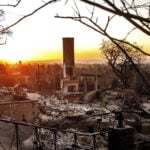 As Los Angeles burns, Hollywood's Oscar season turns into a pledge drive
As Los Angeles burns, Hollywood's Oscar season turns into a pledge drive
 As fires ravage Los Angeles, Tiger Woods isn't sure what will happen with Riviera tournament
As fires ravage Los Angeles, Tiger Woods isn't sure what will happen with Riviera tournament
 Antetokounmpo gets 50th career triple-double as Bucks win 130-115 to end Kings' 7-game win streak
Antetokounmpo gets 50th career triple-double as Bucks win 130-115 to end Kings' 7-game win streak
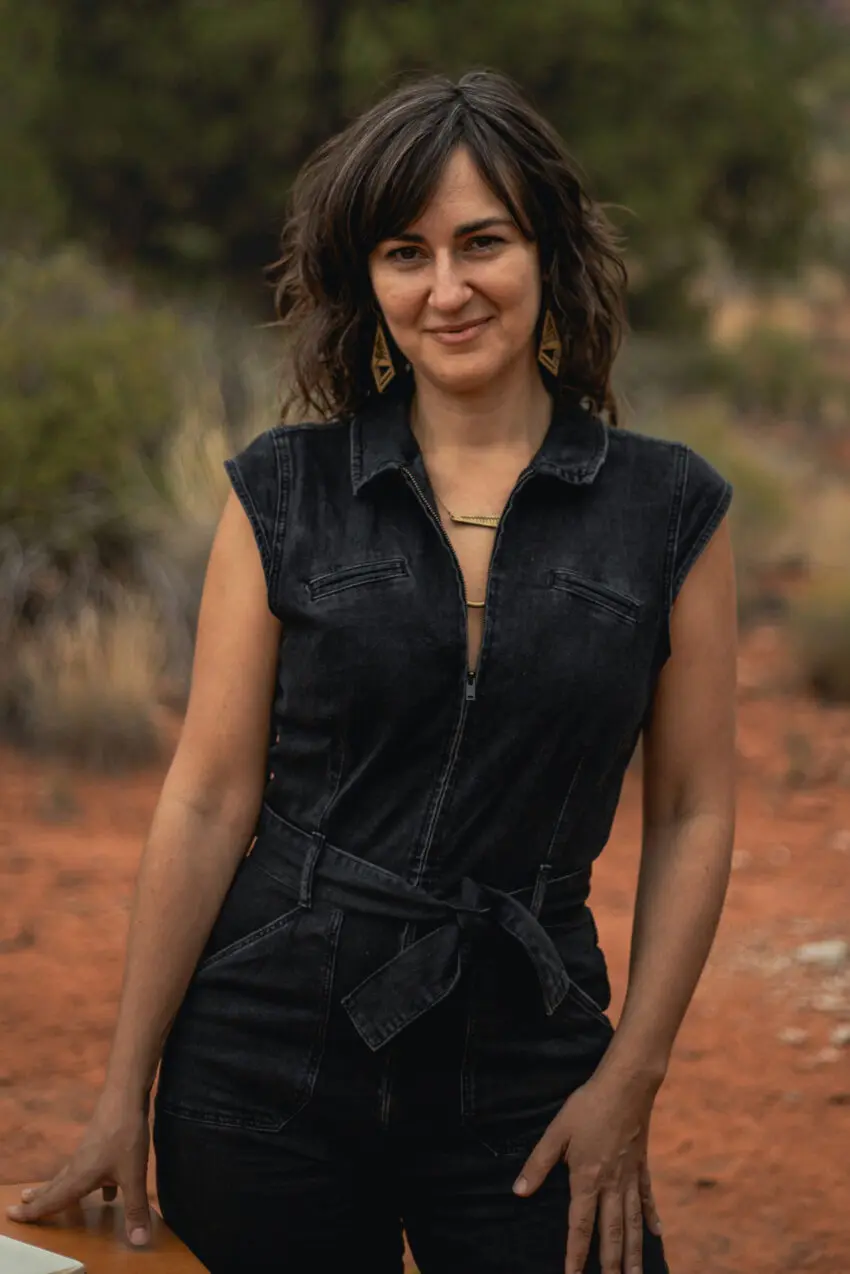 Lindsay Mills via CNN Newsource
Lindsay Mills via CNN Newsource
